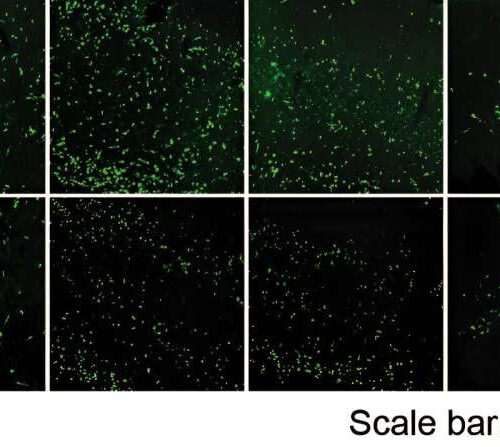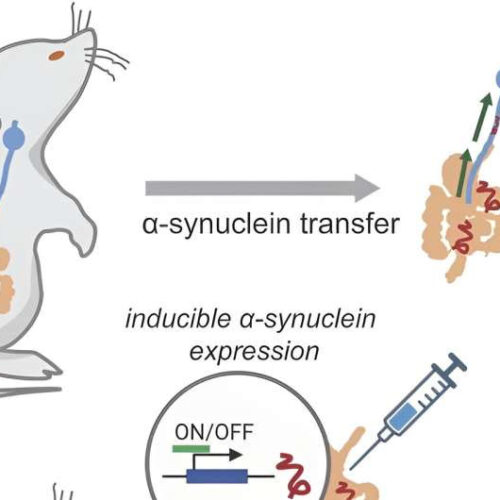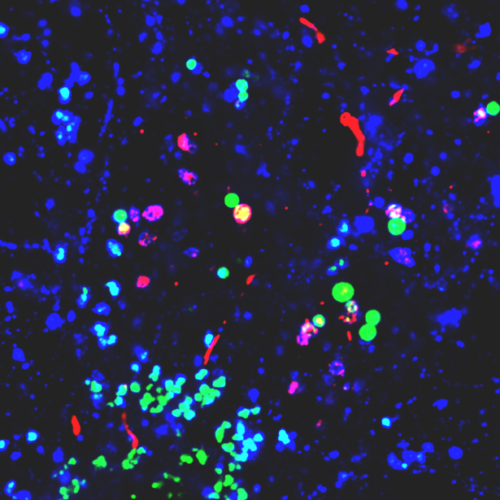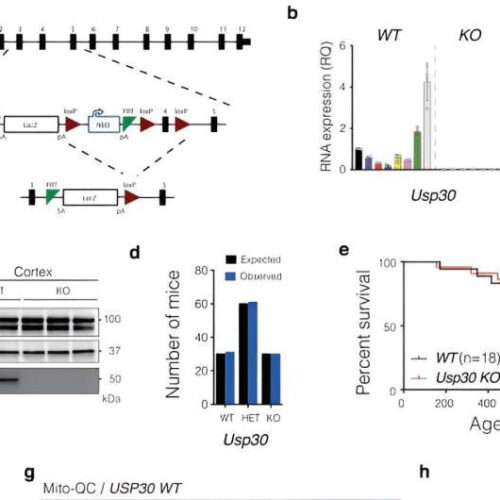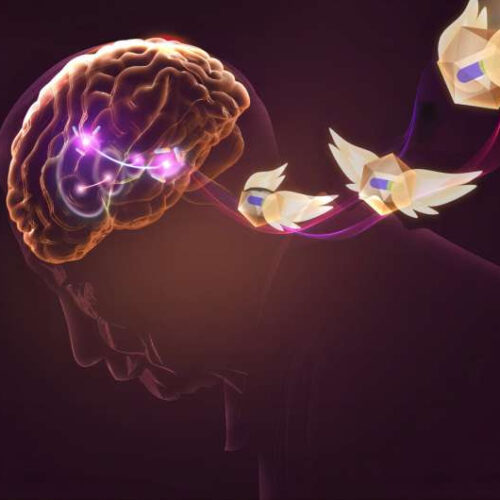by Johns Hopkins University School of Medicine Second row shows how rapamycin dampens alpha-synuclein protein production in a magnified area of a mouse brain. Credit: Mohammed Khan and Ted Dawson, Johns Hopkins Medicine A so-called pathological protein long associated with Parkinson’s disease has been found in a new study to trigger cells to increase protein synthesis,...
Category: <span>parkinsons</span>
New evidence suggests link between gut health and Parkinson’s disease
by Alexis Porter, Duke University Credit: JCI Insight (2023). DOI: 10.1172/jci.insight.172192 While previous studies suggest Parkinson’s disease begins in the gut and spreads to the brain, how the process occurs has been elusive. Now, a pre-clinical study led by Duke Health researchers provides new evidence that bolsters the gut-brain connection. Reporting Dec. 8 in the journal...
Risk factors for the development of freezing of gait in Parkinson’s disease patients
By Dr. Chinta SidharthanDec 6 2023Reviewed by Lily Ramsey, LLM In a recent study published in the journal Npj Parkinson’s Disease, researchers meta-analyzed data obtained from a systematic review to understand the risk factors that influence the development of freezing of gait or FOG — a debilitating condition that occurs in some Parkinson’s disease patients....
Nanoplastics Promote Conditions for Parkinson’s Across Various Lab Models
DURHAM, N.C. – Nanoplastics interact with a particular protein that is naturally found in the brain, creating changes linked to Parkinson’s disease and some types of dementia. In a Duke-led study appearing Nov. 17 in Science Advances, the researchers report that the findings create a foundation for a new area of investigation, fueled by the...
Researchers halt progression of Parkinson’s disease in mouse model
by Jacqueline Mitchell, Beth Israel Deaconess Medical Center Generation and characterization of Usp30 KO mice. a Schematic of gene targeting to generate the Usp30 KO mice. b Bar graph shows the levels of Usp30 gene expression in different tissues in Usp30 WT and KO mice (n = 5 for brain, n = 4 for testis, n = 3 for all other tissues)....
Circuit-specific gene therapy brings new hope for treatment of Parkinson’s disease
by Chinese Academy of Sciences Retrograde AAV selectively targets D1-MSNs and rescues parkinsonian symptoms with chemogenetic modulation. Credit: SIAT Researchers from the Shenzhen Institute of Advanced Technology (SIAT) of the Chinese Academy of Sciences (CAS) and their collaborators have developed a gene therapy strategy to selectively manipulate Parkinson’s disease-affected circuitry and attenuate the core motor symptoms...
Why nearly half of Americans with Parkinson’s don’t see a neurologist
By Simar Bajaj July 10, 2023 Richard Huckabee, seen with his wife, Angela, says it took nine years to be diagnosed with Parkinson’s. COURTESY RICHARD HUCKABEE It took Richard Huckabee nine years to get a Parkinson’s diagnosis. A district manager for a convenience store chain, he first noticed symptoms in 2004 when his voice would...
Is Parkinson’s a Military Base’s Toxic Legacy?
This transcript has been edited for clarity. Welcome to Impact Factor, your weekly dose of commentary on a new medical study. I’m Dr F. Perry Wilson of the Yale School of Medicine. The thing to realize about this story is that even if it were just a problem for the military, it would be a huge problem. But...
Korean population study shows increased Parkinson’s disease in rheumatoid arthritis patients
by Justin Jackson, Medical Xpress Credit: Unsplash/CC0 Public Domain Research led by Kosin University College of Medicine in Korea has found a correlation between patients with rheumatoid arthritis and Parkinson’s disease. In their paper published in JAMA Neurology, researchers found a significantly higher risk of Parkinson’s disease (PD) in patients with rheumatoid arthritis (RA). In a cohort study of...
Common Gut Bacteria Linked to Parkinson’s Disease
Megan Brooks May 12, 2023 A common gut bacteria may play a role in the development of Parkinson’s disease (PD) by causing aggregation of the alpha-synuclein protein, a key feature in the pathology of PD, a small study suggests. Environmental factors as well as genetics are also suspected to play a role in PD etiology, although the exact cause...

